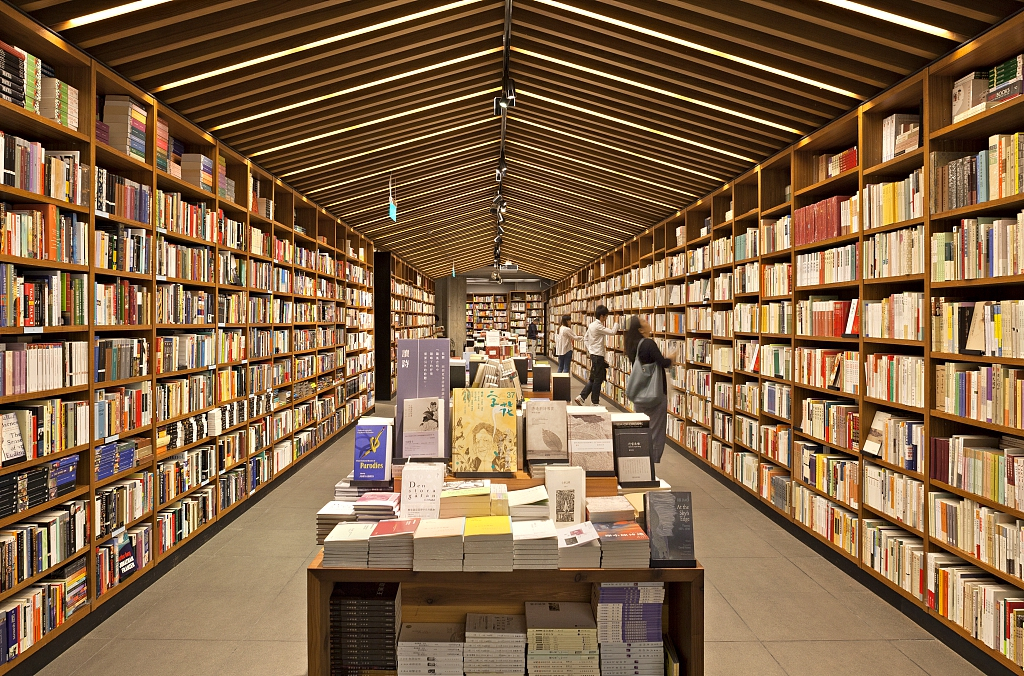
Beijing state-owned cultural assets administration center issues 50 million yuan (about 7 million U.S. dollars) worth of e-vouchers. /VCG
Beijing state-owned cultural assets administration center issues 50 million yuan (about 7 million U.S. dollars) worth of e-vouchers. /VCG
Beijing on Saturday started to hand out 50 million yuan (about seven million U.S. dollars) worth of e-vouchers to boost consumption in its cultural sectors, which has been hit hard by the novel coronavirus pandemic.
The e-vouchers, issued by the Beijing state-owned cultural assets administration center, can be used for purchasing books, audiovisual and lifestyle products, and tickets of art performances and sports competitions, covering various sectors such as tourism, education, sports, leisure and entertainment.
Starting from May 2, local residents and tourists can get the vouchers through the official "Beijing Culture Easy Card" account on WeChat, and enjoy a cash rebate when making payments at offline shops.
The program covers the first batch of 100 offline shops in leisure, entertainment, sports across the capital city, including some of Beijing's best and biggest bookstores, such as the Wangfujing Bookstore, Sanlian Bookstore and Beijing Book Building, a staff with the center said.

The program covers the first batch of 100 offline shops in leisure, entertainment, sports and shopping businesses across the capital city, including some of Beijing's best and biggest bookstores. /VCG
The program covers the first batch of 100 offline shops in leisure, entertainment, sports and shopping businesses across the capital city, including some of Beijing's best and biggest bookstores. /VCG
As online cultural consumption rapidly increases, this year's program has been expanded to include more online cultural products and services, such as digital audio-visual products, online reading and learning.
Launched in 2017, the e-voucher program this year is designed to get local consumers spending again in the aftermath of the coronavirus and to support Beijing's cultural and commercial sectors, as various industries in the city, especially for recreation, entertainment, tourism and sports, have been seriously affected by the pandemic in the past few months.
Immediate effect is visible in some cities
In early March, Chinese authorities released a guideline aimed at boosting consumption and unleashing the potential of the domestic market to cushion the blow of the coronavirus health crisis on economic activities.
A number of Chinese cities, including the central city of Zhengzhou, south China's Foshan, as well as Hangzhou and Nanjing in the east, have answered the call by rolling out online voucher programs worth millions to one-billion-plus yuan.

Experts believe that the e-voucher programs local governments launched with the aid of Internet platforms are an innovative practice to boost consumption in the wake of the coronavirus crisis. /VCG
Experts believe that the e-voucher programs local governments launched with the aid of Internet platforms are an innovative practice to boost consumption in the wake of the coronavirus crisis. /VCG
The latest data released by Bloomberg shows that at least 50 cities across the country have distributed vouchers amounting upwards of six billion yuan via e-payment systems, which had an immediate effect in boosting spending in some places.
In Hangzhou, the capital of coastal Zhejiang Province, coupons led to more than 1.8 billion yuan in consumption, 12 times the government's subsidy. In the epicenter of Wuhan, the ratio was 13 times on the first day of coupon usage, and in Shenzhen, that ratio reached 30 times that in the first week, according to Tencent Holdings Ltd., which helped in online distribution.
Li Xunlei, vice president of the China Chief Economist Forum, believed that a slew of proper stimulus measures are needed to help recover consumption curbed by the pandemic, and the e-voucher programs local governments launched with the aid of Internet platforms are an innovative practice to boost consumption in the wake of the coronavirus crisis.